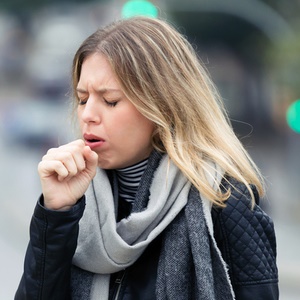
Your lungs enable you to breathe and spread oxygen throughout the body.
Our lungs inhale oxygen-rich air and exhale carbon monoxide-filled air. This is the only way oxygen, which is needed to sustain cell function and life, can enter the body. Our lungs also play a vital role in the body’s “waste disposal” department as they expel harmful and irritating substances from the airways.
Inflammation of the lungs can be either acute or chronic. In for example pneumonia or bronchitis, it usually clears up completely, but in other instances such as smoking, cancer and COPD, it can be chronic.
Besides the above, there are a number of unexpected factors that can compromise or damage the lungs:
1. Mould
Have you recently thrown away a piece of mouldy bread or cheese? That nasty green fungus can be present in your house and you might not even know it. According to a previous Health24 article, moulds are parasitic (living off a live substance) or saprophytic (living off a dead substance) fungi and produce spores that float around in the air. Inhaling these particles can cause an allergic reaction from those allergic to mould. This has similar symptoms to hay fever, like a runny nose and sneezing. Mould spores can, however, also reach the lungs and cause significant damage, which can lead to asthma or another serious illness called allergic bronchopulmonary aspergillosis.
What to do: Ensure proper ventilation in your house to prevent a build-up of moisture. Use air conditioners and dehumidifiers to eliminate the moisture in the air, and install exhaust fans in kitchens and bathrooms if ventilation is limited.
2. Your living room (or bedroom)
Whether it’s a dusty carpet, unwashed curtains, an old mattress, or a collection of scented paraffin candles, there are various elements in your home that may cause lung damage. Carpets can trap allergens such as pollen, mould, pet dander, toxins or cockroach droppings, which are flung into the air whenever you vacuum or walk on the carpet.
If you love burning scented candles, the petroleum-based paraffin and chemicals released into the air can raise your risk of respiratory problems.
What to do: If you are prone to allergies or if respiratory problems, choose wooden or tile flooring or scatter rugs that can easily be washed. Switch to candles made from soy or beeswax.
3. Pesticides
These are good for keeping your garden in top shape, but not so good for the environment and your lungs. Previous research has linked the use of pesticides, especially on a commercial level such as farming, to respiratory problems like asthma and COPD.
What to do: Wear a protective mask and gloves when working with pesticides.
4. Flour
The term "baker’s asthma” is used because bakers are exposed to flour on a daily basis and breathe it in, which may lead to asthma in the long run. According to the World Allergy Organization it’s one of the most common occupational allergens.
What to do: Baking the occasional loaf of bread in your own home will probably not increase your risk of respiratory disease, but if you work as a commercial baker, you might want to protect yourself by wearing a mask. You can also try to avoid spreading flour into the air. Change out of your work clothes before entering the house and ensure there is proper ventilation where you work.
5. Gas appliances
Whether you use a gas heater or a gas stove, when gas burns, it releases tiny particles into the air, which can cause irritation to the lungs and subsequent respiratory problems.
What to do: Limit the use of gas heaters in enclosed areas. If you use a gas stove, make sure it’s been installed properly, that all valves are regularly maintained and serviced, and that there is proper ventilation in your kitchen.
6. Your humidifier
A humidifier is often recommended to help keep allergies and respiratory problems at bay, so why would a humidifier make this list? It’s true that a humidifier can be useful in the management of COPD and other respiratory problems, but when your humidifier isn’t properly maintained and cleaned, it may harbour a fungus which is be blown into the air each time you use it.
What to do: Use your humidifier wisely and make sure that it’s regularly cleaned and serviced. It’s also important that the area where you use it is properly ventilated.
7. Your pets
While there is certainly no need to get rid of your feline, canine or feathered friends, the dander from their fur or feathers may contribute to allergies and respiratory problems.
What to do: Keep your pets, but make sure they (and the area where they live) are squeaky clean.
Image credit: iStock




 Publications
Publications
 Partners
Partners















